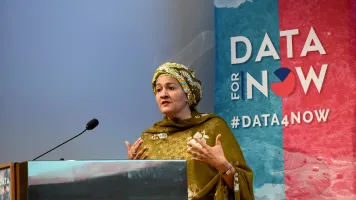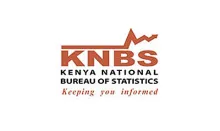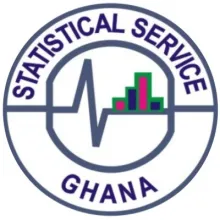The fields of data science, artificial intelligence (AI), and machine learning (ML) have rapidly evolved in recent years, but public sector engagement with these tools often lags. National statistical offices (NSOs) and public sector institutions rely on data for decision-making, policy monitoring and design. By bringing new technologies, data science, and visualization skills into these systems we can unlock data’s potential and enable more effective and efficient policymaking for sustainable development.
At the Global Partnership, we consistently hear from NSO officials across Africa an eagerness to upskill and utilize new technologies, constrained by a lack of resources. In an attempt to support these needs, we launched a free webinar series to provide data practitioners in African NSOs and beyond with insights and training from leading experts.
Modernizing national statistics
The first webinar, co-hosted with the United Nations Economic Commission for Africa (UNECA) explored the transformative role of data science, AI, and ML in modernizing national statistical systems. The webinar featured expert contributions from organizations such as Ghana Statistical Service (GSS), Kenya National Bureau of Statistics (KNBS), National Institute of Statistics of Rwanda (NISR), UNECA, and NVIDIA, offering valuable perspectives on how emerging technologies are reshaping data for sustainable development across Africa’s NSOs.
During the webinar, experts shared insights from their experiences and new ideas for how to harness data science and new technologies in NSOs. Kwamena Leo Akfra spoke on Ghana's use of AI and satellite data for accurate census validation and SDG monitoring. Therese Uwimana presented Rwanda’s Data Linkage Project, which improves accuracy and reduces costs in the Post Enumeration Survey (PES). Serah Ndunda shared Kenya’s experience using data science applications for the consumer price index (CPI) and real estate sectors, which improve accuracy and processing speed. Meanwhile, Issoufou Seidou Sanda from UNECA’s African Center for Statistics presented a roadmap for using AI and ML in automating statistics production, incorporating big data for GDP nowcasting, satellite-based poverty mapping, and estimating socio-economic indicators.
Amid these inspiring examples, it was clear that significant challenges remain in incorporating such technologies into NSO operations. The first hurdles to overcome are the lack of technical expertise and information communication technology infrastructure, requiring focused capacity building and systems investment. Meanwhile, on the policy side, as the collection and analysis of sensitive data increases, there is an urgent need for robust frameworks to ensure responsible and secure data handling. These frameworks must prioritize both security and transparency to maintain public trust in AI-driven data systems. On this note, Sam Afriyie of NVIDIA highlighted the importance of sovereign AI systems—locally governed and tailored to national laws—as essential for security, and cultural preservation.
While integrating these technologies presents challenges, the path forward is clear: capacity building, collaboration, governance, and sustainability. As stakeholders continue to collaborate, the future of data-driven policymaking in Africa looks promising, with AI and data science playing critical roles in driving sustainable development.
Watch the webinar: Harnessing New Technologies, Data Science, AI, and ML to Enhance National Statistics.
Visualizing data-driven decision-making
The second webinar, in partnership with Tableau and CrossroadsCX, explored how public institutions can harness data-driven insights to tackle sustainable development challenges, with practical examples and discussions on using Tableau’s analytical tools to convert data into actionable insights.
The session opened with insights from Uruguay and Nigeria on using Tableau tools to drive data-driven decision-making. Federico Segui, from Uruguay's national statistics office, and Loveth Odiakpa from Nigeria, discussed their experiences of transforming statistical data into accessible insights that could support better data analysis and shape national policy making.
Following these case studies, CrossroadsCX provided a hands-on masterclass, sharing best practices for building interactive dashboards with Tableau, with discussions on how such tools can promote transparency, enhance citizen engagement, and inspire evidence-based policies, driving progress toward achieving the SDGs. Innovative applications, such as interactive maps, CPI calculators, and real estate trend analysis, further illustrated the platform's versatility.
As with the first webinar, challenges remain in capacity, system capabilities, data protection, and data preparation. However, the potential of these tools to revolutionize data utilization was clear.
Watch the webinar: Using data insights to drive policy and development decisions
Towards a data revolution
The enthusiastic participation of hundreds of attendees in these webinars underscored the commitment of Africa’s data practitioners to advancing the data revolution and harnessing the power of data for development policy. To fully realize this potential, significant investments in capacity building, infrastructure, and data systems are essential.
Looking ahead, we will continue hosting webinars, bringing industry partners and NSO staff together to foster learning and cross-sector collaboration. By providing opportunities for capacity building and partnerships we hope these efforts will help to overcome some of the current challenges and enable more data-driven policy for progress on the Sustainable Development Goals.
If you need support with data, platform engineering, or software development, Crossroads CX brings deep expertise to help you achieve your goals. Feel free to reach out at [email protected] or visit us at crossroadscx.com.




